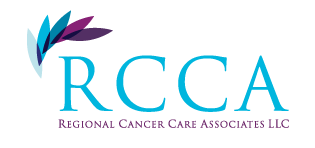
Community Oncologist Discusses CAR T-Cell Therapy and Other Hematology Advances

Sameer Desai, MD, discusses his experience in the hematology field and how CAR T-cell therapy has evolved and its potential integration into community centers.
Sameer Desai, MD
Community oncologist Sameer Desai, MD, has been treating patients with hematologic malignancies for over a decade, and sees CAR T-cell therapy as the most exciting treatment right now.
He is hopeful that refinements in this class of agents will allow for them to be safely and effectively administered in the community setting.
“[At the community center] we are waiting for data on the safety from the newer trials on CAR T-cells,” explained Desai. “[Once that data is released] we will feel more comfortable using these agents. Cost is going to be important because it is a very expensive treatment and we need to make sure that it is affordable for patients. Nonetheless, this is an exciting field and there are a lot of advances coming.”
In an interview with OncLive, Desai, medical oncologist/hematologist, Regional Cancer Care Associates, discussed his experience in the hematology field and how CAR T-cell therapy has evolved and its potential integration into community centers.
OncLive: What is your experience in the hematologic space?
Desai: I started in 2007 and over the past decade there have been many advances in everything from chemotherapy treatments to targeted therapies and now there are CAR T-cell therapies and immunotherapies. In multiple myeloma, when I was training in 2004 to 2007, all we had were chemotherapy treatments and they were very aggressive. Over the last 2 decades, there has been a big change with oral treatments, immunomodulatory drugs, and proteasome inhibitors. Now, we are starting to get a lot of combination therapies, even triplet and quadruplet regimens. Patients were living for 3 years and are now living for decades.
Please expand on the safety and efficacy advances you are observing.
In my overall experience with patients, they are experiencing fewer adverse events from treatments and they are living longer. For example, lymphomas are a broad category of disease and the most aggressive ones, such as large cell lymphomas, have started seeing the use of molecular tests. This is to separate these different types of lymphomas out and define the level [of aggressiveness]. Some patients are being treated with the standard treatment we have been using for years, R-CHOP. Other patients are now being treated with more aggressive treatments because we discover that their tumor is more aggressive than the standard one so they might get infusion treatments that are longer. Right now, we are still trying to figure out what the right treatments are for those patients.
There is more testing being conducted. Newer treatments are being developed in the second-line and third-line settings. The most exciting therapy right now is CAR T-cell therapy. The first [form of this treatment] was approved 2 or 3 years ago and there are several companies trying to further this treatment to get less toxicity. The adverse events tend to be significant where about 15% to 30% of patients experience some sort of neurological toxicity. The newer [forms of CAR T-cell therapy] are possibly going to have fewer adverse events.
What patients can receive CAR T-cell therapy?
I am in a community practice, so we are just starting to use them as far as clinical trials. In practice, they are mostly sent out to medical centers and cancer centers that have more experience using them.
What are some challenges in the community setting?
The adverse events are the biggest challenge. Patients who experience adverse events [with CAR T-cell therapy] need a medical center that is used to treating those types of adverse events. Our group is gaining experience in using these agents in a clinical trial. Hopefully, these agents [will not only be used] in the clinical trial setting, but in the community setting, as well.
What other work are you involved with in the field of chronic leukemia?
We treat a lot of patients with chronic leukemias but acute leukemias we tend to send to a cancer center. However, if there is a patient who is older and not able to take the intensive treatments, we will offer less intensive treatments [at our center].
Are there any data being presented that you are particularly excited about?
CAR T-cells are the most exciting therapy that everyone is looking at now. There are a few more [forms of CAR T-cell therapy] that are going to come out over the next 1 to 2 years that we are all waiting for. In myeloma, there are many agents that are being studied and there seem to be many exciting novel agents in that class. Then there are BTK inhibitors which are being utilized in both chronic lymphocytic leukemia and some of the lymphomas.




































